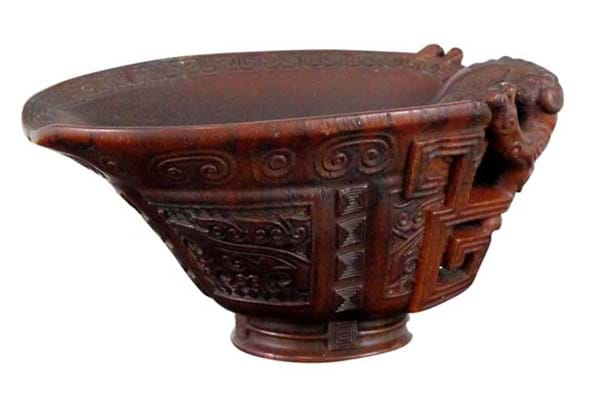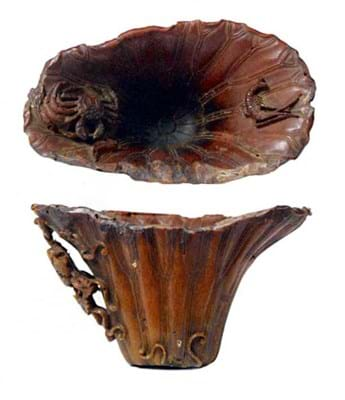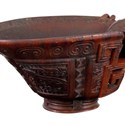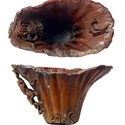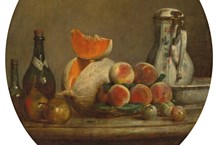On March 21, Gorringes of Lewes offered a fine 17th or 18th century example with archaistic decoration, a 'Shang Ming' seal mark and a deep caramel colour. Prior to the sale the auctioneers announced they were unable to accept live internet bids on this lot or any bids, written or on the telephone, from mainland China. As has become common practice for premium Chinese works of art, the auctioneer asked that potential bidders register specifically for this lot and pay a deposit by bank transfer.
The assembled Chinese and Hong Kong agents in the room watched while a UK-based private buyer outpaced a London dealer at £74,000 (estimate £40,000-60,000). It was not the six-figure sum the vessel might have commanded prior to the legislation but nor did this 'test case' suggest the EU measures (effective until at least the end of the year) will easily extinguish the vibrant European auction market for rhinoceros horn works of arts.
There are fears that the tighter measures may drive the wider market underground.
Bidding was more equivocal at Tennants of Leyburn on March 22 when another 17th century example with some damage sold below hopes at £33,000 (estimate £35,000-45,000) and a 19th century rhino horn carving estimated at a very punchy £65,000-75,000 failed to sell.
The March 12 announcement restricted the export of rhino horn from countries within the European Union much further, extending to all items, whether or not they have been 'worked'. In practice this means that, while it is still legal to sell rhino horn works of art in the UK, they will no longer be granted licences to be sent overseas to the increasingly affluent nations where such things are most highly prized.
In its latest and strongest measures designed to stem the black market trade in powdered rhino horn, the European Commission now advises that: "No export or re-export permits are delivered for worked items of rhino horn, except in cases where it is amply clear that the permit will be used for legitimate purposes, such as cases where: the item is part of a genuine exchange of cultural or artistic goods between reputable institutions (i.e. museums); the item has not been sold and is an heirloom moving as part of a family relocation or as part of a bequest; or the item is part of a bona fide research project."
The UK's Wildlife Licensing and Registration Service (WLRS) say that, regardless of merit, they will now refuse any application to export rhino horn objects to mainland China.
The new measures reverse previous WLRS policy, which provided an exemption for antique works of art made of rhino horn, where the artistic value was far greater than the intrinsic value of the horn when sold into the illegal medicine trade in China. The current record for a rhino horn works of art is the so-called Hoqua gift rhino horn lotus bowl, a carved masterpiece of the 15th century, sold for a premium-inclusive HK24.18m at Sotheby's Hong Kong in October 2010.
While previous restrictions surrounding the export of rhino horn have been discussed with trade bodies such as the British Art Market Federation prior to implementation, this measure was deliberately issued without consultation or warning to avoid the need for any 'grace period'.
Environment minister Richard Benyon used highly emotive language in an official statement when he said: "These magnificent animals are on the brink of extinction, suffering horrific deaths at the hands of greedy poachers. We've been pushing for firmer restrictions to put an end to this cruel trade in the UK, and so I am really pleased to see this important step being taken."
He described the measures as a victory for the ongoing pressure from the UK for tougher controls to tackle the illegal trade in rhino horn but appeared to confuse the issue with elephant ivory when he added: "Evidence suggests that criminal groups are targeting rhino horns in all their forms, including 'artistic items', such as carved ivory, and re-selling it on the black market."
In London the three major auction houses chose to respond toATG's questions regarding the consignment and sale of rhino horn material for the May Asian series, with official statements unequivocally condemning all poaching and promises to scrupulously observe all local and international laws regulating the sale of endangered species.

